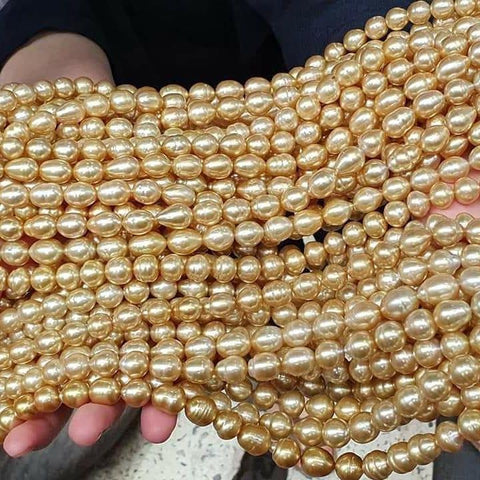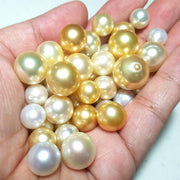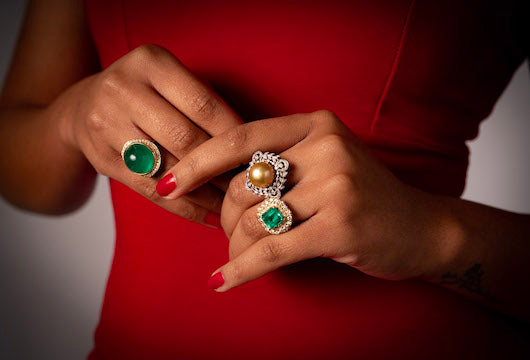The Rising Popularity of Pearls
Pearl jewelry’s comeback this year has been on par with the re-emergence of Betty White – they were all over the 2020 runways and award shows, with even men taking part in the trend. As a result, more and more of us are pulling our grandmothers’ pearl pieces from storage to be worn regularly again. Unfortunately, the revival of our love for these classic beauties is frequently accompanied by ignorance when it comes to how to care for them properly. Pearls are soft by nature, and special steps must be taken if one hopes to pass them to the next generation intact.
Store Pearls Separately from other Jewelry
The nacre, or glowing luminescent covering that makes pearls adularescent, is easily scratched or otherwise marred if not handled carefully. Pearls should always be stored in their own special pouch to prevent scratching their surface on gold pieces or harder stones. A soft velvet, cotton, or satin pouch is perfect, or even a soft handkerchief folded into your jewelry box will suffice if you do not have a pouch that is readily available. Avoid storing pearls in plastic baggies; they are composed of organic substances and need to breathe to maintain their luster.

Golden South Sea Pearls Strands
Last Thing On, First Thing Off
A wise old adage says pearls should be the last thing you put on and the first thing you take off. The warning is given with good reason – hairspray and perfume are notoriously dangerous for our favorite pearl pieces due to the presence of harmful chemicals in their formulas. Over time, those innocent spritzes that are a part of your daily routine can irreparably dull the surface of your pearls. Putting them on last allows your hairspray and perfume to dry before contact.
Use Caution with Cleansing Solutions
Pearls can also be permanently damaged by the household cleaners we use every day. Ammonia and vinegar are especially detrimental – there has been more than one incidence of an accidental splash of salad dressing or a spritz of window cleaner on a pearl ring when cleaning that permanently ruined a favorite piece of jewelry. Accidents do happen – if your pearls come into contact with either ammonia or vinegar, immediately rinse them with a mild cleanser (like dish detergent) and allow them to dry fully in a damp cloth. When the cloth is dry, so are the pearls, and they are ready to be safely stored away.
Keep Pearls Clean
Pearls should be wiped gently with a damp cloth after each wear to remove residual sweat, body oils, and other damaging substances. All of the above can impact the color and luster of your pearls if left in contact with their surface for an extended period.
At least twice a year, wash pearls thoroughly with a mild soap in warm, sudsy water. Gently wipe each pearl with a cloth to remove any caked-on grime, then carefully use a soft brush to get to difficult to reach areas, like the contact point between the sides of the pearls and the knots between them. Allow your pearls (and the silk on which they are strung) ample time to dry before storage.
Restring Pearls Annually
Pearl strands wear over time, especially when they are worn with regularity. To avoid breakage and possibly losing a hard to match pearl from your strand (or more if they aren’t knotted), take your pearls to a reputable jeweler to have them restrung. Silk is recommended, and with the exception of very small pearls, the strand should be individually knotted between each pearl.
Watch Humidity Levels
Pearls need moisture to look their best – overly dry environments can cause the nacre of the pearl to crack (safety deposit boxes are notorious culprits). If you store your pearls in a vault or other locked box with low humidity, place a small vial of water or damp rag in the box and occasionally check it, replenishing when necessary.
With proper care, your cherished pearls may very well outlive you to be passed down to the next generation. Follow these tips to ensure that you enjoy your favorite strand for many years to come.


